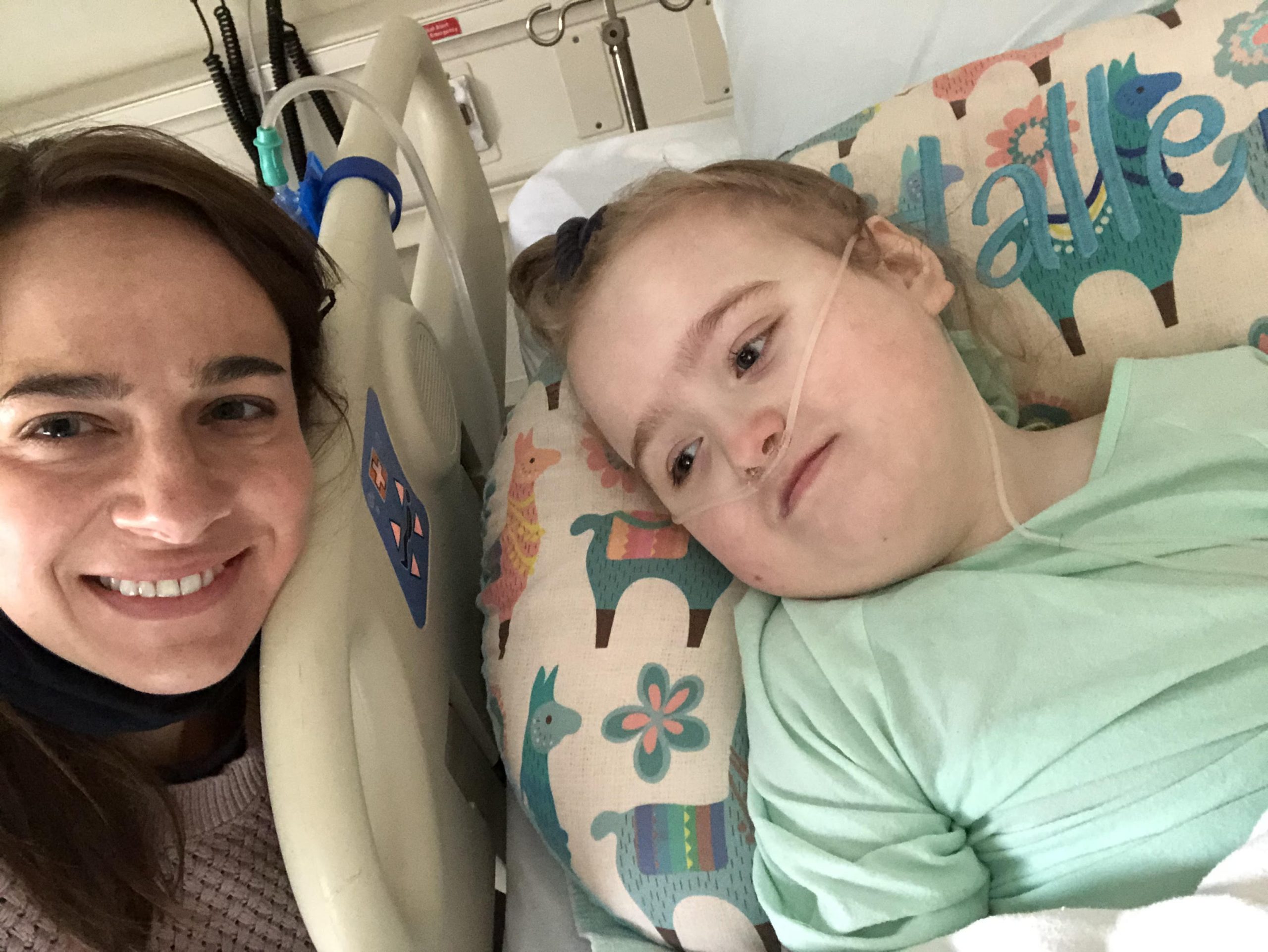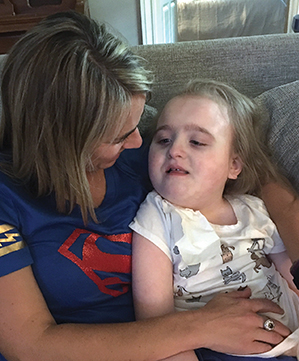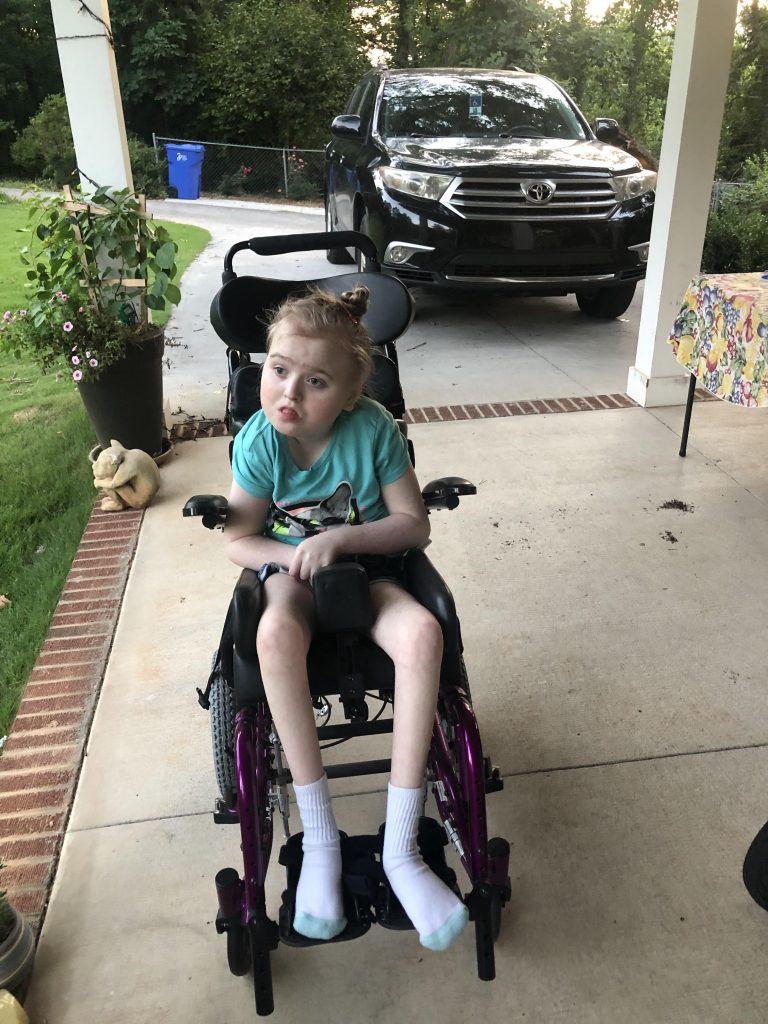8/10/2021
·Enable high contrast reading
Why the Pandemic was a Gift of Sorts

The title of this article is itself a cruel injustice. People have suffered. Families have lost dear ones much too soon. Student mental health is suffering. Jobs have been permanently eliminated. Families are split over the politics of vaccines. The left and right hate each other. We can agree on nothing. The world as we knew it is over.
Oh, ok, that last statement isn’t true. But some days it feels that way.
 I’m not writing this article to say that my family had idyllic family dinners for the first time in years. But speckled across our country are thousands of individuals with rare diseases, with immune-compromised systems, who for their entire lives have taken the precautions taken by many more during the pandemic. These individuals – children with genetic illnesses (many in palliative care) and adults living with lifelong diseases – are all whole humans. They have the exact same humanity and personhood of every individual with a fully functioning immune system. And on Facebook groups and virtual support sessions for individuals with lifelong illnesses, or their caregivers, we’ve all talked about how this year has been a gift of health. Pediatric specialists who often see those children who suffer have uttered the same refrain: “our special children and special adults have been healthier than ever this year.”
I’m not writing this article to say that my family had idyllic family dinners for the first time in years. But speckled across our country are thousands of individuals with rare diseases, with immune-compromised systems, who for their entire lives have taken the precautions taken by many more during the pandemic. These individuals – children with genetic illnesses (many in palliative care) and adults living with lifelong diseases – are all whole humans. They have the exact same humanity and personhood of every individual with a fully functioning immune system. And on Facebook groups and virtual support sessions for individuals with lifelong illnesses, or their caregivers, we’ve all talked about how this year has been a gift of health. Pediatric specialists who often see those children who suffer have uttered the same refrain: “our special children and special adults have been healthier than ever this year.”
My daughter, Halle, has one of these rare diseases that is so rare in fact that it lacks a name. It is a CACNA1C disorder. As part of that, she has epilepsy, low muscle tone, long QT syndrome, and is non-ambulatory, yet she loves and receives love like every person. Her humanity is complete. Halle has been in palliative care for over a year now and her contentment throughout her illness is one of our chief priorities. For those of us who spend hours annually at the neurologist or geneticist or lung specialist or cardiologist, all of the mask-wearing, distancing, hand-sanitizing, hand washing, awareness of symptoms, and caution have provided many of us with a momentary reprieve from hospital stays and worry.
Staying in this space would not make sense. At the same time that I have a daughter with immune suppression, I have two active, social, rambunctious boys. Their humanity and her humanity bring their own individual needs and their needs for education, socialization, and health sometimes conflict with her needs for isolation and caution. While this may look different in our house, almost any parent can speak to how each of their children have different needs.
Thus, as we open our doors more to vaccinated friends and send our boys back to school, we are reminded of the lessons learned this past year. When care is taken by many, the fragile amongst us thrive.
 Our country is struggling to come together on anything right now. People say it’s the sign of democracy in decay. I don’t want to believe that just yet. It’s really my hope that we can throw open our doors and windows to more empathy. I want us all to think about walking in others’ shoes, whatever their story may be. It wouldn’t be healthy or smart to stay in lockdown. But it would be smart to get vaccinated even if you aren’t worried about your own possible encounter with Covid-19. Getting vaccinated on behalf of others is a sure sign of loving kindness.
Our country is struggling to come together on anything right now. People say it’s the sign of democracy in decay. I don’t want to believe that just yet. It’s really my hope that we can throw open our doors and windows to more empathy. I want us all to think about walking in others’ shoes, whatever their story may be. It wouldn’t be healthy or smart to stay in lockdown. But it would be smart to get vaccinated even if you aren’t worried about your own possible encounter with Covid-19. Getting vaccinated on behalf of others is a sure sign of loving kindness.
Our family is taking the steps to rejoin the world. However, as we take those steps, it is our hope that the medically fragile are not forgotten. These individuals with serious health challenges walk into the world daily and worry about germs. They keep distance, wear masks, wash their hands, get vaccines, and make health decisions every day in order to maintain high quality of life. Let us not forget the lessons learned during the pandemic. Taking basic health precautions – staying home when sick, washing hands, keeping bits of distance – can really go a long way towards keeping many people healthier.
Cathy Stevens is mother to Anders (13), Halle (11), and Evan (7). She and her husband Erik live in Greenville, SC, where they both work at Furman University. Cathy works at the Richard W. Riley Institute and studies education policy. Her favorite role is as a mom, and she enjoys playing tennis, hiking, and travelling with her children. Halle’s uniqueness has taught Cathy a lot about advocacy work, and Cathy spends a lot of time advocating for children with different and special needs.


